
How bad can it really be?
Customer reviews are the lifeblood of shopping on Amazon, but because of their importance they’re also highly susceptible to tampering. So, to get a better sense of how far we can truly trust these ratings of one to five stars, our reporters sometimes go slumming in the one-star bin.
This time Masanuki Sunakoma took the plunge and bought an alarm clock from Amazon Japan that had an average rating of 1.1 stars based on 12 reviews as of this writing. Generally, if just one or two people give something a bad review, there’s still a fair chance that it’s just misunderstood, but when 12 people are saying a product sucks it certainly seems like that’s the case.
The box had “Cover” printed on it in a subtly sophisticated style. The calm package design gave the feeling of a high-end electronics product, and suddenly made the price of 2,599 yen ($23) seem not so steep.
Also, inside the box where two AAA batteries, which was a nice touch in this batteries-not-included world.
Masanuki then reached in and pulled out his new alarm clock…which was a big red button.
This actually wasn’t a surprise since he could see the product before buying. This item is labeled as a “time signal device” to be used by the elderly and visually impaired. In that way it sounds like a pretty good idea as a clock that literally tells the time, and is even good for those chronic over-sleepers too tired to open their eyes to know the time.
However, that’s where the problems begin. According to the reviews, this clock’s Japanese is “clumsy” and “hard to understand” which is really the worst problem you can have for a voice-based clock.
But to find out the truth, Masanuki would first have to set this clock. This works by a simple two-button process. A tiny button near the battery compartment switches between hours, minutes, years, months, days, alarm hours, alarm minutes, and a toggle to set the alarm on or off. The main red button is then used to set the number for each category by pressing it that number of times.
▼ We highlighted the setting button with a red square
This is all very easy in theory, but in practice it can be quite maddening. Masanuki was just lucky he wasn’t setting it at 11:59 p.m. on 31 December.
▼ The clock setting process
That was a bit of a hassle, but considering the clock was intended to be used as an audio interface, there probably weren’t many other options. While watching the above video, those familiar with spoken Japanese might have noticed that the voice had a certain accent to it, possibly Chinese.
According to the box the clock was made in China, so that was likely the case. Still, with all the available computerized voices out there, it’s interesting that they sold a clock that spoke Japanese with a fairly heavy Chinese accent.
Once it was set up, Masanuki took it for a test drive.
He pressed the big red button once like a contestant on a quiz show.
“The…time…now…is…one…fif…ty…two…minutes…p.m.”
Pressing the button once again soon after will make it say the date.
“The…current…date…is…October…twentieth…Wednesday…”
▼ The time-telling process
There technically wasn’t anything wrong with what the clock said, but Masanuki could kind of see why some people might have trouble with the stilted delivery and accent. Still, he could see himself getting used to it just fine, and when he closes his eyes he could feel like he was in China.
The oddest idiosyncrasy is that the voice designates the minutes as “minutes” but doesn’t say anything for the hours. This can cause some utterances that might cause a double-take, like how “seven fifty-two minutes” could be interpreted as “7:52” or “752 minutes.” It’s a little more confusing in the Japanese numbering system, but still isn’t horribly hard to understand. However, considering the role of this clock, it’d probably be much better without this way of speaking.
A more pressing problem for Masanuki was that when you remove the batteries, the memory completely resets and you have to set the time all over again. He wasn’t sure if that was a common problem with most alarm clocks, but it was really compounded with this one, given how tiresome the setting process is.
In conclusion, it certainly is a product with some rough patches. Especially given the number of readily available and affordable professional voice actors in Japan, there really isn’t much of an excuse not to invest in a good voice for a clock that does nothing but talk.
Still, there’s a bright side to everything and this clock does have the ability to magically whisk you away to a Beijing hotel, and just in time for next year’s Olympics!
Related: Amazon Japan
Photos © SoraNews24
● Want to hear about SoraNews24’s latest articles as soon as they’re published? Follow us on Facebook and Twitter!
[ Read in Japanese ]


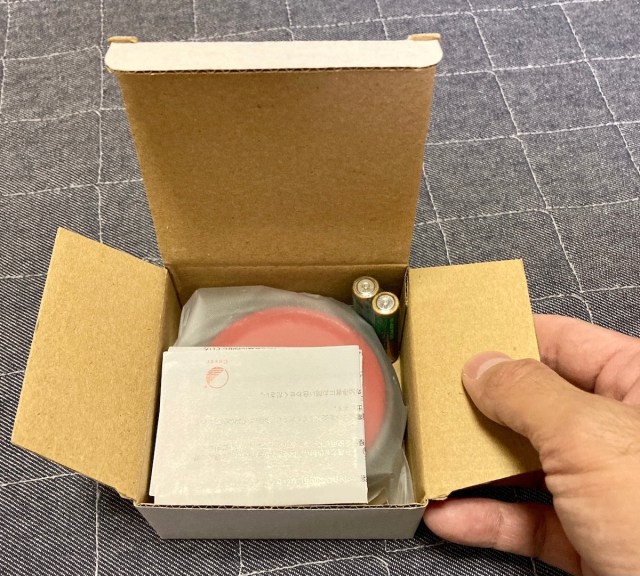
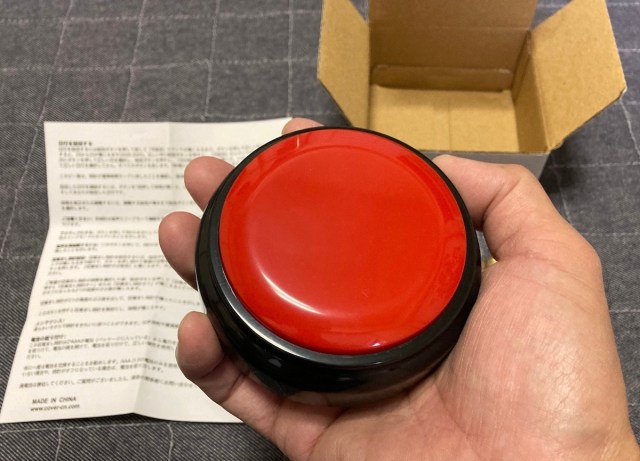
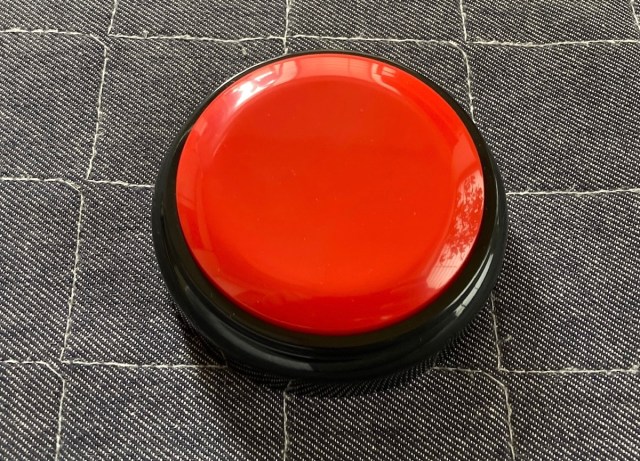
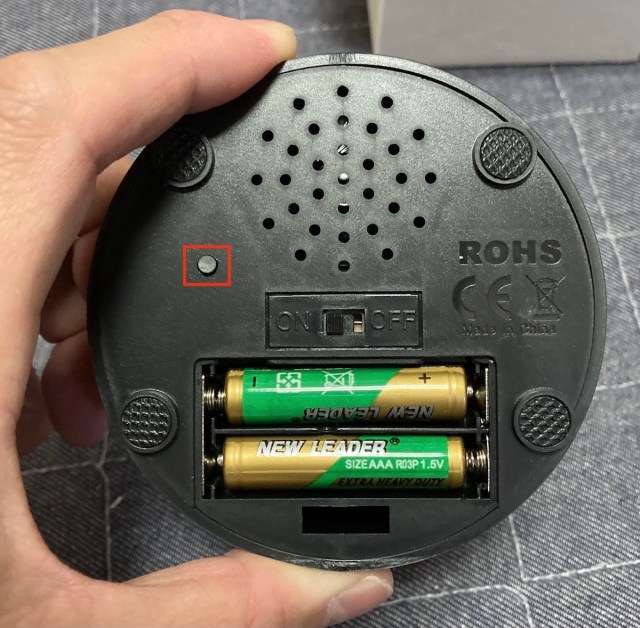
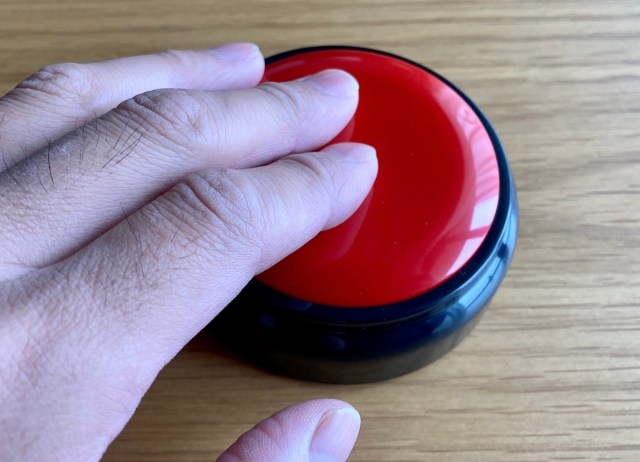
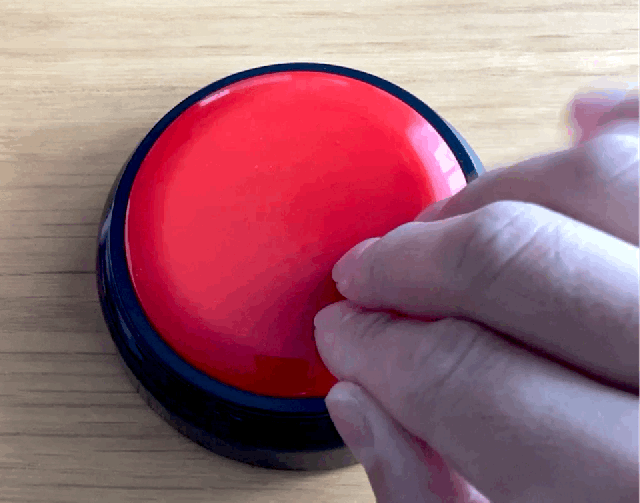
 We try Amazon Japan’s lowest rated portable washing machine
We try Amazon Japan’s lowest rated portable washing machine It’s a race against time with Amazon Japan’s lowest-rated hourglass
It’s a race against time with Amazon Japan’s lowest-rated hourglass We buy the lowest-rated sexy pillow on Amazon Japan
We buy the lowest-rated sexy pillow on Amazon Japan We buy Amazon Japan’s lowest-rated perpetual motion machine
We buy Amazon Japan’s lowest-rated perpetual motion machine We buy Amazon’s lowest-rated smartphone “Eye-view Camera Hat” for easy, hands-free videography
We buy Amazon’s lowest-rated smartphone “Eye-view Camera Hat” for easy, hands-free videography Starbucks Japan releases first-ever Hinamatsuri Girls’ Day Frappuccino
Starbucks Japan releases first-ever Hinamatsuri Girls’ Day Frappuccino Japan’s craziest burger chain takes menchi katsu to new extreme levels
Japan’s craziest burger chain takes menchi katsu to new extreme levels Japanese restaurant chain serves Dragon Ball donuts and Senzu Beans this spring
Japanese restaurant chain serves Dragon Ball donuts and Senzu Beans this spring The oldest tunnel in Japan is believed to be haunted, and strange things happen when we go there
The oldest tunnel in Japan is believed to be haunted, and strange things happen when we go there Japanese teacher shares surprising reason why the kanji for crow has one less line than bird
Japanese teacher shares surprising reason why the kanji for crow has one less line than bird Which convenience store onigiri rice balls are the most popular? Survey reveals surprising results
Which convenience store onigiri rice balls are the most popular? Survey reveals surprising results Man in Japan takes four parakeets hostage in attempt to force woman to meet with him
Man in Japan takes four parakeets hostage in attempt to force woman to meet with him Man arrested in Japan after leaving car in coin parking lot for six years, racking up three-million-yen bill
Man arrested in Japan after leaving car in coin parking lot for six years, racking up three-million-yen bill Tokyo street sweets: The must-snack treats of Nakano’s Refutei
Tokyo street sweets: The must-snack treats of Nakano’s Refutei Osaka establishes first designated smoking area in Dotonbori canal district to fight “overtourism”
Osaka establishes first designated smoking area in Dotonbori canal district to fight “overtourism” Highest Starbucks in Japan set to open this spring in the Tokyo sky
Highest Starbucks in Japan set to open this spring in the Tokyo sky The 10 most annoying things foreign tourists do on Japanese trains, according to locals
The 10 most annoying things foreign tourists do on Japanese trains, according to locals Tokyo Skytree turns pink for the cherry blossom season
Tokyo Skytree turns pink for the cherry blossom season Yakuzen ramen restaurant in Tokyo is very different to a yakuza ramen restaurant
Yakuzen ramen restaurant in Tokyo is very different to a yakuza ramen restaurant Shibuya Station’s Hachiko Gate and Yamanote Line stairway locations change next month
Shibuya Station’s Hachiko Gate and Yamanote Line stairway locations change next month Starbucks Japan releases new sakura goods and drinkware for cherry blossom season 2026
Starbucks Japan releases new sakura goods and drinkware for cherry blossom season 2026 Starbucks Japan adds new sakura Frappuccino and cherry blossom drinks to the menu
Starbucks Japan adds new sakura Frappuccino and cherry blossom drinks to the menu Japan Extreme Budget Travel! A trip from Tokyo to Izumo for just 30,000 yen [Part 1]
Japan Extreme Budget Travel! A trip from Tokyo to Izumo for just 30,000 yen [Part 1] Japan’s new “Cunte” contact lenses aren’t pronounced like you’re probably thinking they are
Japan’s new “Cunte” contact lenses aren’t pronounced like you’re probably thinking they are Japan’s newest Shinkansen has no seats…or passengers [Video]
Japan’s newest Shinkansen has no seats…or passengers [Video] Foreigners accounting for over 80 percent of off-course skiers needing rescue in Japan’s Hokkaido
Foreigners accounting for over 80 percent of off-course skiers needing rescue in Japan’s Hokkaido Super-salty pizza sends six kids to the hospital in Japan, linguistics blamed
Super-salty pizza sends six kids to the hospital in Japan, linguistics blamed Starbucks Japan unveils new sakura Frappuccino for cherry blossom season 2026
Starbucks Japan unveils new sakura Frappuccino for cherry blossom season 2026 Foreign tourists in Japan will get free Shinkansen tickets to promote regional tourism
Foreign tourists in Japan will get free Shinkansen tickets to promote regional tourism Take a trip to Japan’s Dododo Land, the most irritating place on Earth
Take a trip to Japan’s Dododo Land, the most irritating place on Earth Naruto and Converse team up for new line of shinobi sneakers[Photos]
Naruto and Converse team up for new line of shinobi sneakers[Photos] Is China’s don’t-go-to-Japan warning affecting the lines at a popular Tokyo gyukatsu restaurant?
Is China’s don’t-go-to-Japan warning affecting the lines at a popular Tokyo gyukatsu restaurant? Survey asks foreign tourists what bothered them in Japan, more than half gave same answer
Survey asks foreign tourists what bothered them in Japan, more than half gave same answer Japan’s human washing machines will go on sale to general public, demos to be held in Tokyo
Japan’s human washing machines will go on sale to general public, demos to be held in Tokyo Starbucks Japan releases new drinkware and goods for Valentine’s Day
Starbucks Japan releases new drinkware and goods for Valentine’s Day We deeply regret going into this tunnel on our walk in the mountains of Japan
We deeply regret going into this tunnel on our walk in the mountains of Japan Studio Ghibli releases Kodama forest spirits from Princess Mononoke to light up your home
Studio Ghibli releases Kodama forest spirits from Princess Mononoke to light up your home Major Japanese hotel chain says reservations via overseas booking sites may not be valid
Major Japanese hotel chain says reservations via overseas booking sites may not be valid Put sesame oil in your coffee? Japanese maker says it’s the best way to start your day【Taste test】
Put sesame oil in your coffee? Japanese maker says it’s the best way to start your day【Taste test】 No more using real katana for tourism activities, Japan’s National Police Agency says
No more using real katana for tourism activities, Japan’s National Police Agency says Trying out Amazon Japan’s lowest-rated fireworks with 60 consecutive shots
Trying out Amazon Japan’s lowest-rated fireworks with 60 consecutive shots Trying out Amazon Japan’s lowest rated magic wand
Trying out Amazon Japan’s lowest rated magic wand We try Amazon Japan’s lowest-rated ab roller with elbow supports, reviewed as “The literal worst”
We try Amazon Japan’s lowest-rated ab roller with elbow supports, reviewed as “The literal worst” Taking Amazon Japan’s lowest-rated light-up nunchucks out for a spin
Taking Amazon Japan’s lowest-rated light-up nunchucks out for a spin Putting on a magic show with Amazon Japan’s lowest rated magic props
Putting on a magic show with Amazon Japan’s lowest rated magic props Amazon Japan’s lowest-rated toy train is the perfect gift for kids who like to be confused
Amazon Japan’s lowest-rated toy train is the perfect gift for kids who like to be confused European and American Men’s Wig: the lowest-rated wig on Amazon Japan
European and American Men’s Wig: the lowest-rated wig on Amazon Japan We brave the winter with the lowest-rated gloves from Amazon Japan
We brave the winter with the lowest-rated gloves from Amazon Japan Trying out Amazon Japan’s lowest-rated wall decoration
Trying out Amazon Japan’s lowest-rated wall decoration We try Amazon’s lowest rated posing mannequin, but it wasn’t the doll that was one star
We try Amazon’s lowest rated posing mannequin, but it wasn’t the doll that was one star Testing Amazon Japan’s lowest-rated Screaming Pot【Video】
Testing Amazon Japan’s lowest-rated Screaming Pot【Video】 Can Amazon Japan’s low-rated clothes drying bag save us in a pinch?
Can Amazon Japan’s low-rated clothes drying bag save us in a pinch? A look inside Amazon Japan’s lowest-rated lucky bag
A look inside Amazon Japan’s lowest-rated lucky bag Amazon Japan’s lowest-rated beckoning cat good luck charm is full of lies, might be cursed【Pics】
Amazon Japan’s lowest-rated beckoning cat good luck charm is full of lies, might be cursed【Pics】 Check out this awesome Dragon Ball alarm clock of olden days, preserved in all its ’90s glory
Check out this awesome Dragon Ball alarm clock of olden days, preserved in all its ’90s glory We bought a low-rated levitating speaker on Amazon that made us want to cry
We bought a low-rated levitating speaker on Amazon that made us want to cry